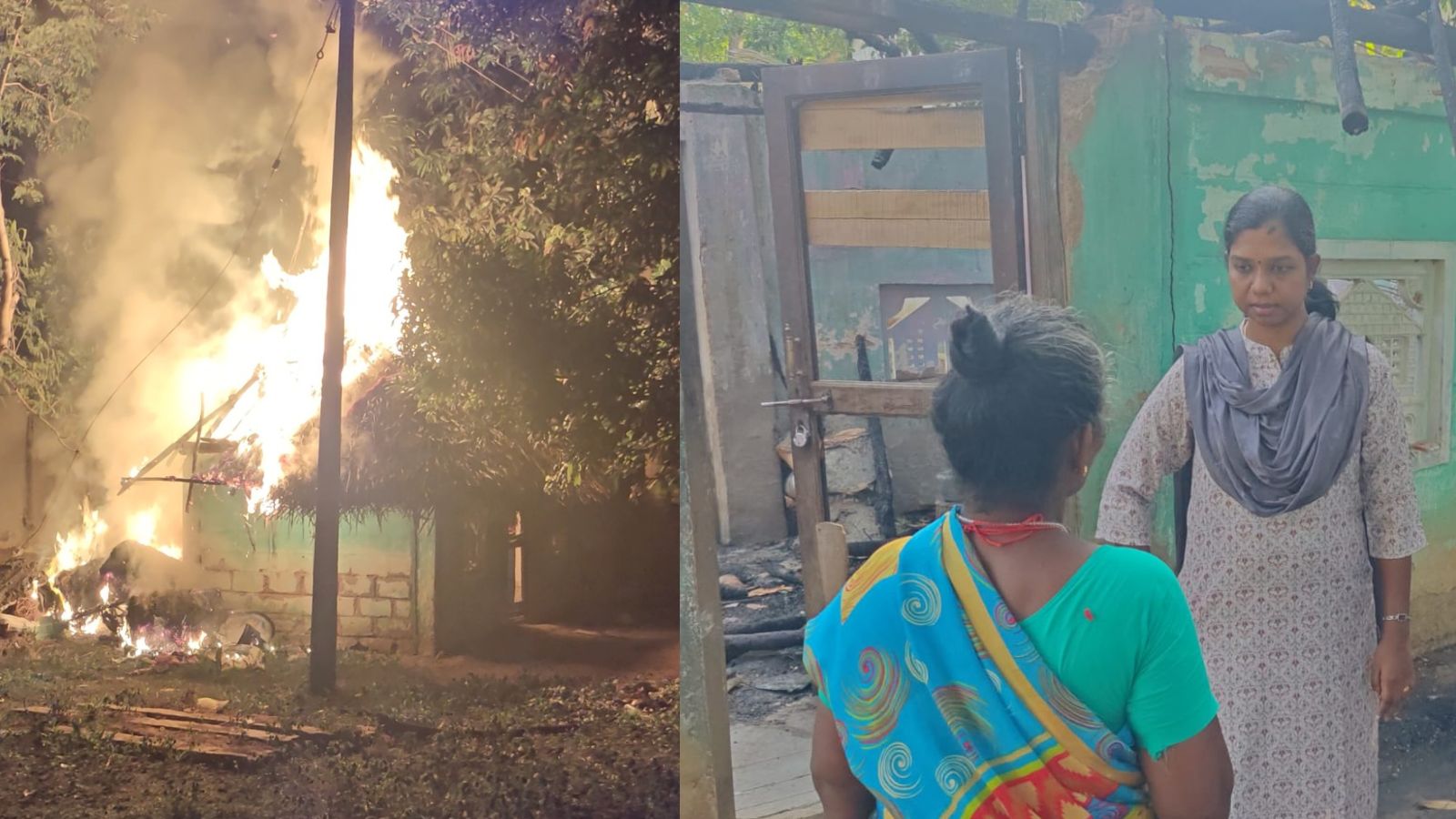Following the court’s reprimand, District Collector M Aruna visited Vadakadu and held discussions with the residents and officials.
Published May 16, 2025 | 1:07 PM ⚊ Updated May 16, 2025 | 1:37 PM

Pudukkottai collector M. Aruna visited Vadakadu after the high court criticised the officials.
Synopsis: The Madurai Bench of the Madras High Court questioned the Pudukkottai district administration for their inaction during the recent caste violence in Vadakadu village and questioned why the district collector failed to visit the scene. The court said the officials were doing only white-collar work.
The Madurai Bench of the Madras High Court on Thursday, 15 May, came down heavily on the Pudukkottai district administration for their inaction during the recent caste violence in Vadakadu village, questioning why the district collector failed to visit the scene on the day of the incident.
The bench, comprising Justices Velmurugan and KK Ramakrishnan, directed the submission of CCTV footage from 4 to 7 May, covering the days of the Mariamman temple festival and the subsequent violence from the temple and surrounding areas.
The court was hearing a petition filed by Shanmugam, a resident of Pudukkottai, who sought appropriate action against those who attacked Dalit residents during the temple festival in Vadakadu on 5 May. The petitioner alleged that over 300 individuals belonging to an Other Backward Classes (OBC) community had targeted Scheduled Caste (SC) residents, assaulting them and setting fire to their homes following a minor altercation near the temple.
The attack, reportedly triggered by a dispute over the presence of Dalit youngsters near the temple during the festival, left several injured and required hospitalisation. The petitioner accused the police of arresting only 10 individuals while allowing many of the perpetrators to go unpunished.
He sought the formation of an independent fact-finding committee comprising a member from the National Commission for Scheduled Castes, the Tamil Nadu Adi Dravidar Welfare Department, social activists, and legal experts to investigate the incident. The petition also called for the assurance that Dalits would be allowed to worship freely at the Mariamman temple.
Pudukkottai District Collector M Aruna and Superintendent of Police (SP) Abhishek Gupta appeared in person before the court and stated that a total of ₹8.75 lakh had been disbursed as interim relief to the affected families. They assured the court that houses destroyed in the violence would be rebuilt under the Kalaignar Kanavu Illam scheme.
They further informed the court that police security had been strengthened in the village. They said 21 people had been arrested so far in connection with the violence, and cases had been filed against nine named individuals.
They also claimed that the underlying issue involved a dispute over control of poramboke (public) land near the temple, which had now been resolved, allowing members of all communities to worship at the temple peacefully.
However, the judges were unconvinced by the official explanation. “All of you — the collector, SP, and revenue officials — are doing only white-collar work,” the bench observed sharply. “Why did the district collector not visit the spot on the day of the incident?” the court questioned.
Following the court’s reprimand, District Collector Aruna visited Vadakadu on Friday morning and held discussions with the residents and officials.
Earlier, South First had documented how Thiruvalluvar Nagar, a predominantly Dalit settlement in Vadakadu village of Pudukkottai district, was turned into a site of targeted violence.
On the night of 5 May, over 300 men, allegedly from the dominant Mutharaiyar community, stormed the neighbourhood, armed with machetes and five-foot sticks. What followed was not a spontaneous clash, but a coordinated assault: Homes were ransacked, vehicles torched, a hut set ablaze, and more than 15 residents severely injured.
The attackers filmed the violence on their phones, added music, and shared the videos on Instagram, not as evidence, but as a display of dominance. The police initially dismissed the attack as a drunken scuffle over a petrol queue. However, on the ground, Dalit residents pointed to long-simmering tensions rooted in caste hierarchies and unresolved disputes over control of a local temple land.
Caste politics in Vadakadu are layered and volatile. The Mutharaiyars, though officially classified as an OBC group, have traditionally wielded socio-economic and political power in this conflict-laden part of Pudukkottai.
Dalits, particularly the Parayas, have been asserting themselves in recent years — socially, politically, and symbolically. However, each act of assertion has met with resistance, and sometimes, retribution.
(Edited by Muhammed Fazil.)
